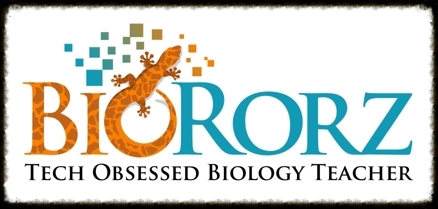A Social Media Success Story: Global Collaboration Anyone?
Thirteen years ago, I started my overseas career in Caracas, Venezuela at Escuela Campo Alegre. It was there that I met my first true mentor teacher, Rich Lehrer. Unfortunately, he met with an untimely "demise" in my forensics science project the following year, "Who Killed Mr. Lehrer". I guess he took it personally because he moved to Brazil that summer, and I didn't hear from him again until last Thursday...on Facebook chat.
Rich: Hey Rory!
Me: Hey Rich! Long time! How's it going?
Rich: That's for sure! Thing are pretty good. Hey, can I tell you about a cool global project my kids are involved in? (No small talk for this guy!)
In short, Rich has developed a PBL unit around efficient biomass cook stoves. His 8th grade science class has formed a global collaborative with schools from Rwanda, Brazil, Uganda, and now Mumbai to explore energy usage in these country as it relates to their project. It is pretty much awesomeness. Check it out at this link. One of the aims of their project is to involve other schools from around the world in their ongoing Global Efficient Cook Stove Education Project. They are looking to assist other schools who are interested in
mounting a global, hands-on, evidence-based, design-challenge approach to this and other issues of sustainability. Rich's contact information can be found on his wiki site. He would love to connect with other schools so give him a shout if you are interested! I am hoping to connect his class with a couple of my students who are working on a connected project here in Mumbai. Gotta love social media!
Coincidentally, I came across a post this afternoon by Steve Wheeler on my Twitter feed that speaks to the importance of global collaboration for educators. In his post, Three Things, Steve states:
"Learning needs to be globalised. As we develop personal expertise, and begin to practice it in applied contexts, we need to connect with global communities. Students who share their content online can reach a worldwide audience who can act as a peer network to provide constructive feedback. Teachers can crowd-source their ideas and share their content in professional forums and global learning collectives, or harness the power of social media to access thought leaders in their particular field of expertise. Scholars who are not connected into the global community are increasingly isolated and will in time be left behind as the world of education advances ever onward."
Indeed, Steve. Well said.

